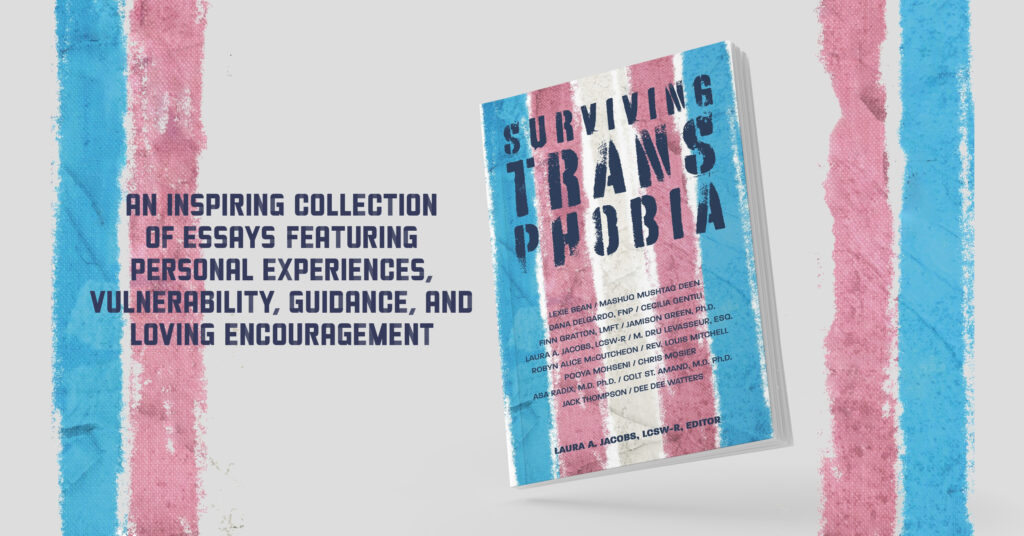
Below is an excerpt from the chapter “Tango Between Two Worlds” by Cecilia Gentili, from anthology Surviving Transphobia edited by Laura A. Jacobs.
As a child living under state oppression, my family in South America was in constant fear for their lives. Nobody really cared about queer or trans liberation because there wasn’t time and there certainly weren’t resources. I grew up watching American movies showing many types of people thriving, living with big backyards, and I truly did not understand what they meant when they showed lives where people could be themselves and be safe.
Adults who lived through the dictatorship adapted to that life, the opposite of people being themselves. I still have uncles who say, “I wish I still had the dictatorship,” if only for the comfort of understanding what was going on and who was in charge. Now people like me, who were born during the regime, want continued change toward freedom and democracy and to move away from the terrors we saw as children.
And now we’ve got kids born post-dictatorship; young people have no idea about the tyranny and what it meant. Now we have all these different kinds of people living at the same time, and together creating the reality of Argentina today.
The dictatorship ended in 1983, when I was only twelve years old. Before then, all the “rainbow” identities were hidden. I was shocked with what felt like new discoveries, like, “Oh, there’s gay people out there!” or “Wow! You can write about oppression?! I never knew!!” I am the product of that shift from full dictatorship to freedom. I am grateful to know the difference between both extremes when I am reading the paper or working for trans and trans sex worker justice. It shaped me to say, “I don’t want this shit! Never again! I don’t want to live in war! I don’t want my family members to disappear! I don’t want to experience any more loss!” This is easy to scream and shout now, it’s obvious, but back then, I needed to hide.
My mother, before she died, told me how sorry she was for being so harsh toward me and my fluidity when I was a child. She said, “I want you to know that I was trying to protect you. I knew that if I had just let you be, you would get taken away.” That’s a hard reality to live with because I had so much resentment toward her during my transition and as I became who I am today. At the same time, I have to be grateful to her for not letting me be. She only wanted us to live under the radar and to be safe. I was flamboyant and hard to keep closeted, and the challenge for her only grew after I was exposed to new information and ways of being as a teen.
The experiences with my mother and my mother country have shaped my voice as an activist. In the U.S. LGBTQIA+ world, people say, “Be yourself. Be authentic. Come out and experience freedom,” right? There’s a lot of pressure on me and on our leaders to always be positive and empowering in such a specific way. Well, I respect that narrative, but mine is a little bit different. Reader, whoever you are, maybe because I was born where and when I was, I believe that being yourself is very important. But I prefer you to be alive and in the closet than to be out and dead. This way, you can still fight and enjoy some of life. I say this to trans people, trans women of color, and to trans women of color who are undocumented or sex workers or both, people like me:
Do what you can to achieve whatever level of empowerment you can get, but also be safe.